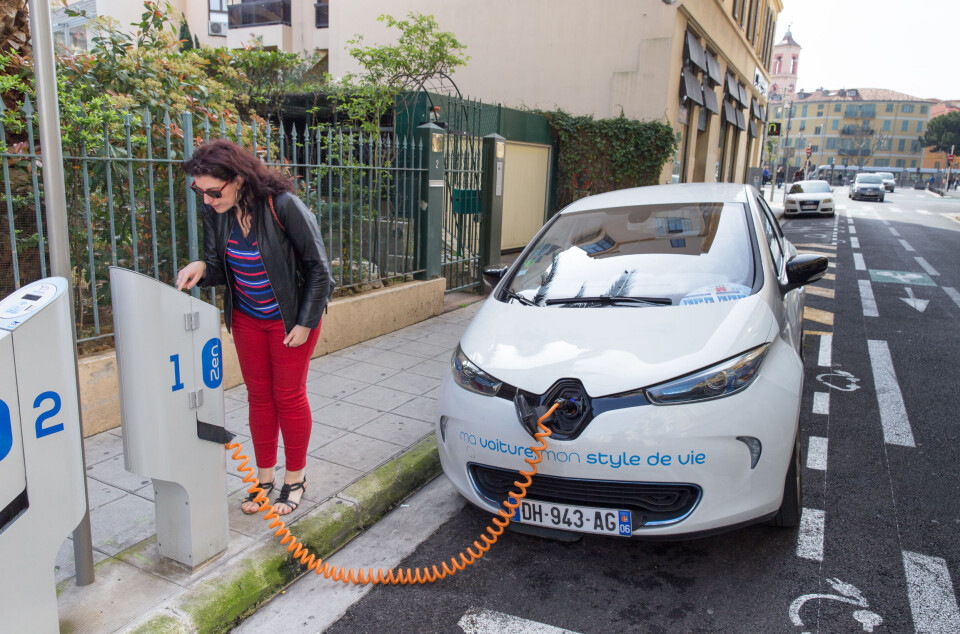-
Why it is becoming harder to park in urban areas in France
A new law is set to come into force this year
-
Good news as lower electricity bills confirmed in France
The change is not a ‘revolution’ but will give some purchasing power back, minister says
-
‘No-licence’ cars: six rules to know in France
Double the number of these cars were registered in 2024 compared to 2019
EU’s electric car deal could ‘wipe out’ European automobile industry
The EU’s decision to ban the sale of new petrol and diesel cars by 2035 will increase the bloc’s dependence on China, says electric car expert Nicolas Meilhan

European legislators agreed a deal in October which would see the sale of new petrol, diesel and hybrid cars banned in the EU from 2035.
This could have devastating consequences for car manufacturing on the continent, warns Nicolas Meilhan, senior adviser at EV-volumes.com, a database that records electric vehicle sales worldwide.

Pic: Nicolas Meilhan
“In 2035, 80% of the new car market will be small, inexpensive electric cars made in China,” he predicts.
More than 160,000 new electric cars were sold in France in 2021, accounting for 9.8% of the new car market.
Read more: Thinking of buying an electric car in France? Now may be a good time
Read more: Guide: what aid can I get to buy an electric car in France?
However, far more second-hand vehicles are sold (six million last year) than new cars (1.6 million), and Mr Meilhan believes the latter will be increasingly out of reach under the new regulations.
“Europe is the only continent doing this.
‘...kiss of death to our manufacturers’
We might be giving the kiss of death to our manufacturers,” he said, adding that fewer people will be able to afford new cars.
One obstacle is the cost of producing batteries, which represents 40% of manufacturing outlay due to the costly metals needed, according to the engineer, who graduated from MIT and ESTP Paris.
“2022 is the first year where the price of batteries has increased, which is why the price of electric cars has risen between 10% and 30%.
“Lithium prices have multiplied by 10 in the last two years. Unfortunately, the strain on fuel provisions is being redirected to a strain on metals.
Read more: Cost, lack of charging places: blocks on buying electric car in France
‘...end up 80% dependent on China’
“Where we were dependent on Opec (oil exporting) countries for 40% of our fuel, we will end up being 80% dependent on China, as China controls the entire supply chain of batteries, and notably 80% of cobalt refining.”
The world’s second largest economy could keep primary resources for itself, or force companies to move their factories to Asia in return for refined cobalt, he warned.
“Today, China is the second largest manufacturer of electric cars sold in Europe, just behind Germany, but in my opinion they will overtake them too.”
Cobalt is often used in car batteries so they can store more energy and cover greater distances.
There are other batteries, like lithium iron phosphate (LFP) used in certain Tesla cars, which must be charged more often but require fewer rare metals.
“If we decided batteries need not be greater than 40 or 60kWh, meaning 300 to 500km of autonomy, we wouldn’t have this problem, as we could use LFP.”
Focus on short journeys
He argues the best way to reduce dependence on fossil fuels is to focus on short journeys, the easiest to electrify.
“We could aim to go without petrol or diesel by 2030 for daily trips, which represent 80% of all journeys.”
The EU hopes for all cars to be CO2- neutral by 2050, as the average car lifespan is 15 years.
Mr Meilhan said the focus should be on households in rural areas with no access to public transport which have more than one car.
In 2018, 36% of households had at least two cars.
“One could be electric, and they could use the other for long distances.”
French environmental agency Ademe agrees on the need to ensure electric vehicles are not too large.
EVs have smaller carbon footprint
In a report published in October, it claimed the carbon footprint over the lifetime of an electric car in France is half to a third that of a fossil fuel-powered car, provided the battery is smaller than 60kWh.
Manufacturing electric vehicles pollutes more than other cars, and the environmental impact increases in almost direct proportion to the vehicle’s weight, according to Ademe.
A small electric car will need to run for 20,000km to compensate for the added pollution during manufacturing, while an SUV will repay this ‘debt’ only after 100,000km.
It also said electric vehicles with small batteries will cost less money over their lifespan than combustion-engine cars, once various grants are deducted. Mr Meilhan said electric cars are most suitable for people who drive at least 30 km per day.
“That means your fuel bill is €150 per month. With a second-hand electric car costing €100 per month, plus charging the battery, you will save money without needing any grants.”
He has called on the EU to do more to ensure a sufficient electricity supply.
“Electric cars were good because they cost four times less to charge than it cost to fill up a petrol car. But that was before electricity prices quadrupled.”
The measure must now be formally adopted by the EU Parliament and Council.
Volkswagen has already said it will produce only electric vehicles in Europe from 2033.
Related articles
France to trial zero-interest loans for electric vehicle conversions
























